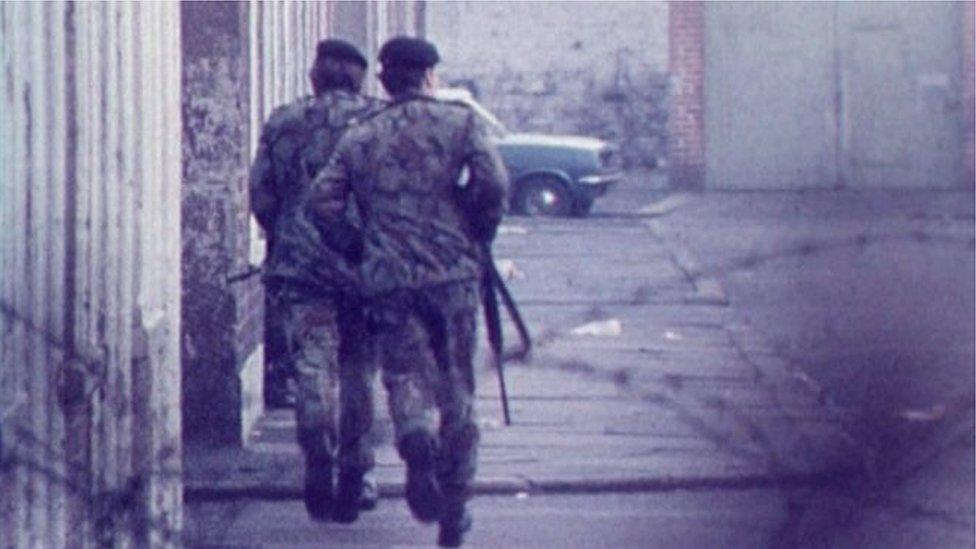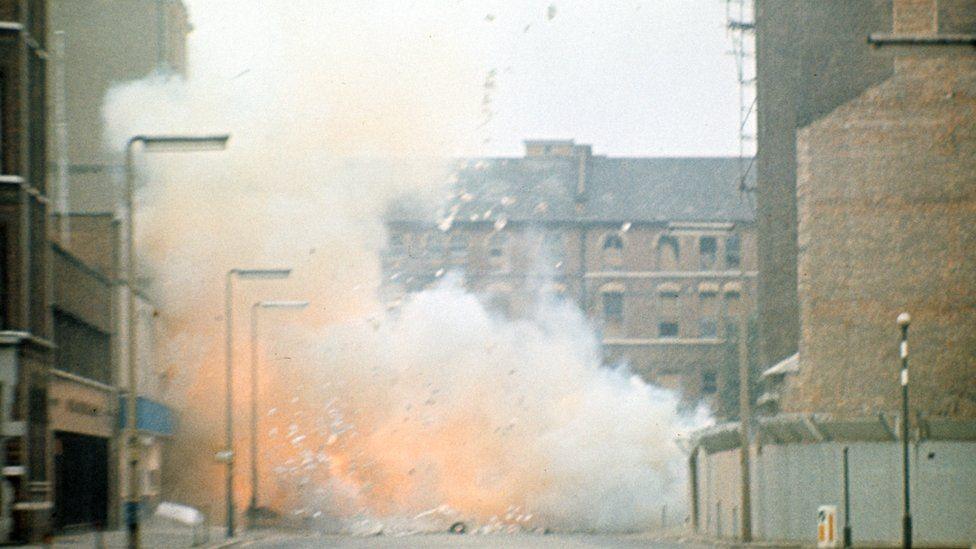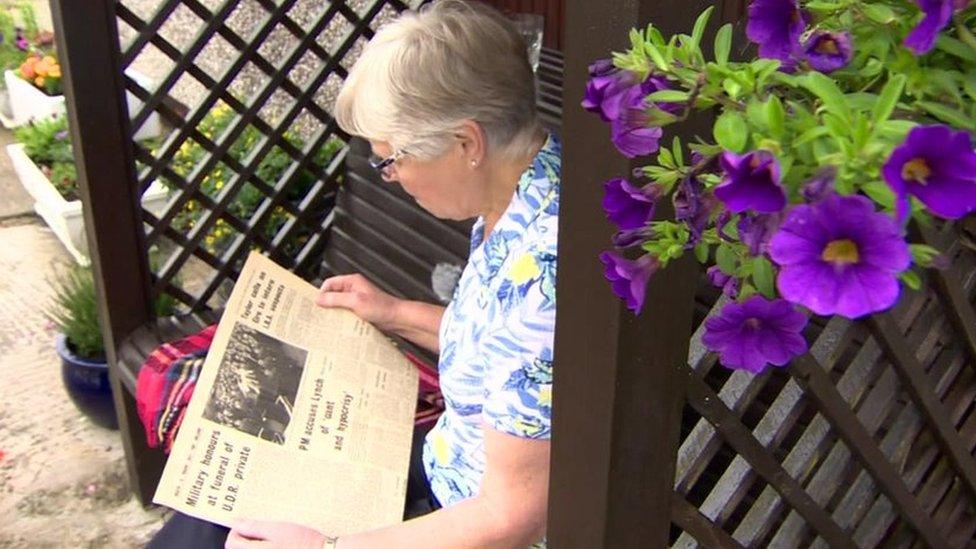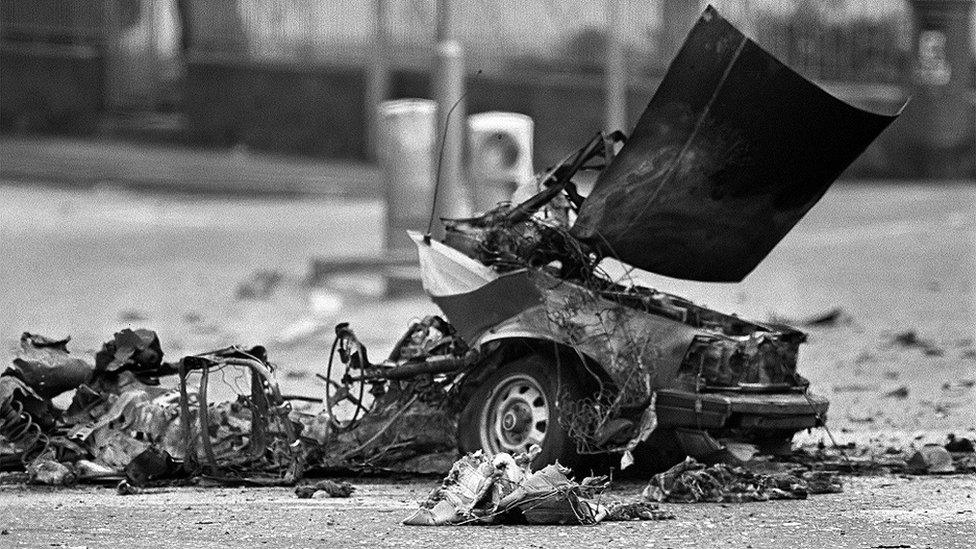Troubles legacy: Submission made to UN over 'betrayal of victims'
- Published

The government's Troubles amnesty plans have been denounced by all of Northern Ireland's political parties
A submission has been made by Amnesty International to the United Nations (UN) stating the government's Troubles amnesty proposals are "an utter betrayal" of victims.
The group has included video testimony by some of those who could be affected.
The government's plan to end all investigations, inquests and civil actions has been denounced by all of Northern Ireland's political parties.
Last month, UN human rights experts also expressed serious concerns.
Amnesty International has now followed up with the UN Human Rights Council.
'Undermines the rule of law'
"We call on the UN Human Rights Council to challenge the government's plans to shield perpetrators and permanently deny justice to all victims," said Grainne Teggart, Amnesty International's Northern Ireland campaigns manager.
"This not only breaches the UK's international and domestic human rights obligations, but unduly interferes in our justice system and undermines the rule of law."
A spokesman for the government said its sympathies were with Troubles' victims and their families but the current system was "not working well for anybody".
"It is delivering neither justice nor information to the vast majority of families," he said.
"Obtaining information, through thorough and robust investigations, is the cornerstone of the government's proposals."

The government plans to bring forward legislation in the autumn
He said the government "would consider its next steps carefully".
The move is seen as the government's way of preventing prosecutions of former soldiers, which stems from a manifesto pledge it made two years ago.
Veterans who served in Northern Ireland support the proposals.
The government has stated it wants to bring forward legislation later in the autumn.
If passed, it would shift the focus on dealing with killings prior to 1998 to providing information for victims' families.
One of those who backs Amnesty's intervention is Eugene Oliver, whose father Tom was murdered by the IRA in 1991.
"Recent developments in the investigation into my father's murder bring us closer than ever to finding out the full truth of what happened and having those responsible held accountable," said Mr Oliver.
"If the government's proposals become law, this investigation will end and we'll be condemned to a lifetime of never knowing."
- Published9 August 2021

- Published20 July 2021

- Published14 July 2021
